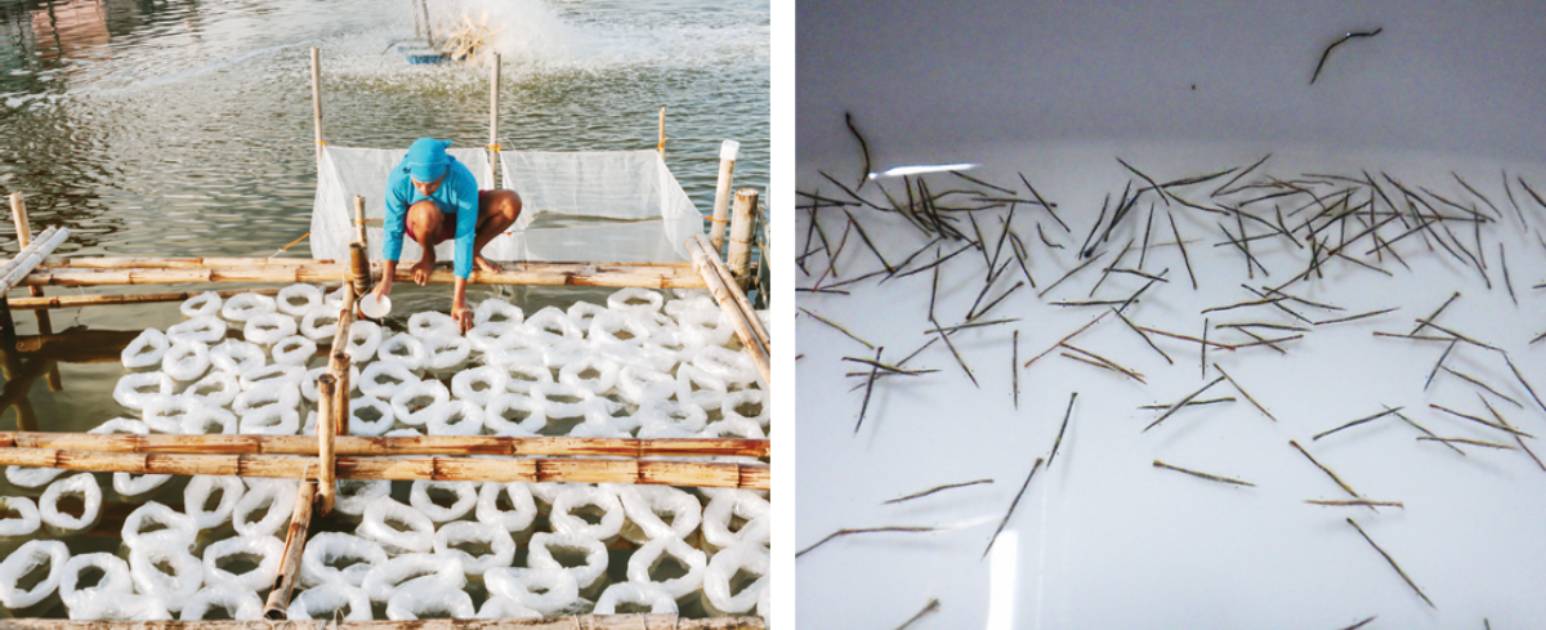
The Southeast Asian Fisheries and Development Center (SEAFDEC/AQD) has harvested 600,000 high-quality shrimp postlarvae (PL) at its biosecure hatchery in Tigbauan Main Station in Iloilo, on May 20. This is part of the “Oplan Balik Sugpo” program. The black tiger shrimp broodstock facility in Tigbauan began operations in 2023, with a production capacity of 80 million PL annually.
These PL produced using wild spawners from Carles, Iloilo, were used to seed another grow-out run at SEAFDEC/AQD.
Harvested PL were packed in double-layered polyethylene bags, each filled with one-third UV-sterilized seawater and two-thirds oxygen, to ensure stress-free transport to SEAFDEC/AQD’s Dumangas Brackishwater Station (DBS). There, they underwent a 30-minute acclimatization process before being stocked in two earthen ponds. These PL are expected to be harvested after 120 days of culture. Last year, the research center netted five tonnes of tiger shrimp from 200,000 PL with a stocking density of 25 PL/m2.
The Oplan Balik Sugpo program aims to revive the once-thriving black tiger shrimp sector in the country. It focuses on improving local broodstock, strengthening biosecurity practices, and promoting sustainable farming approaches. It supports local shrimp farmers by supplying robust, hatchery-reared fry with higher survival rates, which can improve farm yields and boost profitability.
“By producing disease-free and locally sourced larvae, we not only reduce dependence on imported shrimp stocks but also help shield farms from disease outbreaks,” said SEAFDEC/AQD Chief Dan Baliao.
At its peak in 1994, the Philippines produced 90,426 tonnes of black tiger shrimp However, production declined in the following years, dropping to 88,815 tonnes in 1995. In 2024, the production of Penaeus vannamei was estimated at around 70,000 tonnes. The Philippine Statistics Authority (PSA) data was 22,855 tonnes of black tiger shrimp in 2024. Efforts to revive the industry include the Oplan Balik Sugpo program, which focuses on producing high-quality post-larvae and implementing sustainable farming practices. Additionally, the SEAFDEC/AQD inaugurated a black tiger shrimp broodstock facility in 2023, with a production capacity of 80 million post-larvae annually.
PSA=




